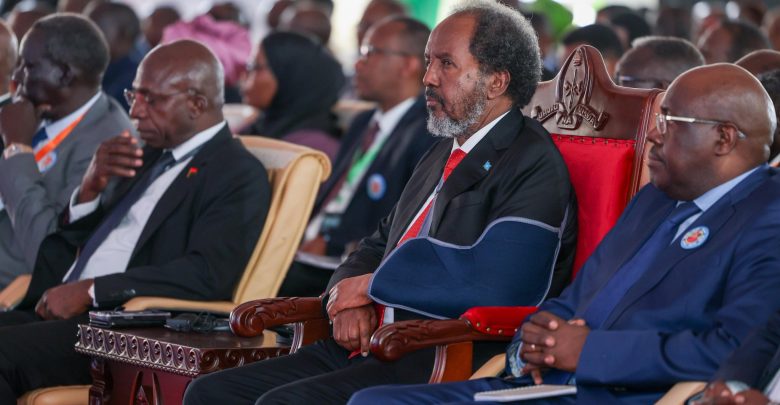In a historic move, Somalia was formally admitted as the eighth member state of the East African Community (EAC) on Friday, culminating three weeks after unanimous approval at a leaders’ summit in Arusha, Tanzania.
Read More: South African Court Declares Zulu King’s Coronation Unlawful
President Hassan Sheikh Mohamud marked this significant occasion by signing the Treaty of Accession. The ceremony, held in Entebbe, Uganda, witnessed the presence of South Sudan President Salva Kiir, the current chair of the East African Community, and Uganda’s President Yoweri Museveni.
The EAC functions both as a trade bloc and a customs union, aiming to foster economic cooperation and integration among member states. However, Kenya and Tanzania, the region’s largest economies, have faced accusations of hindering free trade, prompting scrutiny of the bloc’s effectiveness.
Read More: US-Africa Trade Hits Record $14.2B in 2023 – White House
Despite the celebratory moment for Somalia’s admission, the East African Community has faced criticism for what some perceive as rapid expansion at the expense of achieving meaningful integration. Similar concerns were raised during the approval of the Democratic Republic of Congo’s membership, a country still grappling with internal conflicts, particularly in its eastern region.
The political landscape within the East African Community has also been marred by conflicts between member states, with accusations and counter-accusations undermining the bloc’s progress. For instance, Kinshasa has accused Kigali of using the M23 rebels as a proxy, leading to tensions.
Read More: The Synergy of African Innovation and Narrative Alchemy
As Somalia formally joins the EAC, the community faces ongoing challenges that necessitate addressing issues of free trade, internal conflicts, and regional integration to ensure a more cohesive and effective union.





